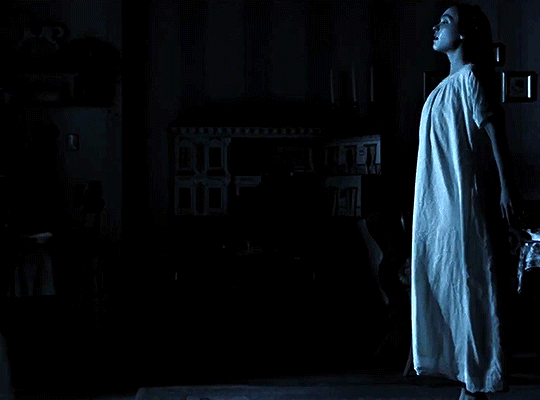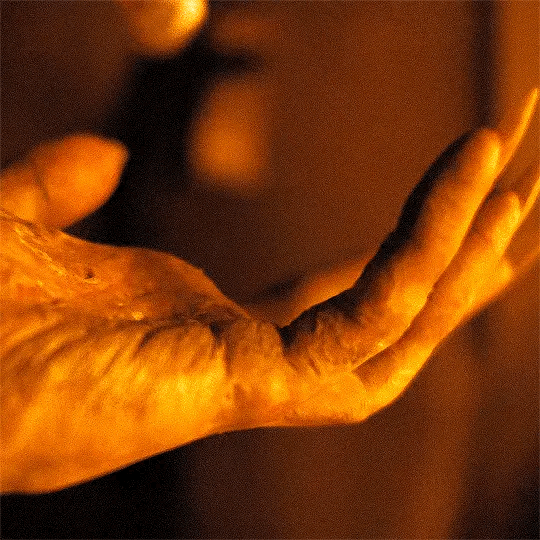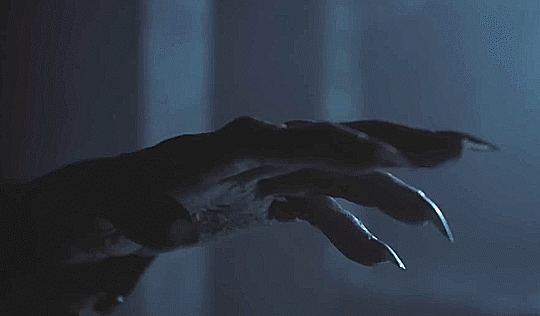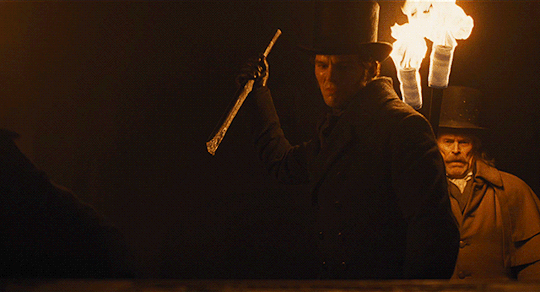#but i don't feel like it could've been destroyed when for example its the origin of the term cell in a microbiological context
Explore tagged Tumblr posts
Text
Film Friday Spooksmas Special: Nosferatu
A local arthaus cinema had an early showing of Robert Eggers' Nosferatu. I have a mixed relationship with Eggers (more on that later) but I did think the trailer looked enticing and that the decision to really hold back on how much they showed of the (presumably) ugly bastard was a genuinely smart one. So, how did it go?

First of all, I want to start with what I've chosen to label the "This Isn't Dracula"-bucket. I'm a pretty severe fan of the original Brahm Stoker novel, and I do find myself sighing a little bit whenever an adaptation does a common but unforced error. This whole "Dracula has a particular red thread-esque reason to go for Mina in particular" business for example? Utter nonsense. Dracula is an evil, twisted little man, and he sets his sights on Mina in part because he, like us, thinks Mina is pretty neat, and in part to spite her husband whom he left for dead. Dracula is a bit of an asshole, you see, and he delights in the torment of young Jonathan in particular. Oh, and Jonathan, my dear, poor, sweet avenging angel wife guy potential vampire. Most frequently wasted literary character in western canon I have little doubt.
Now, as you may remember, this isn't a Dracula adaptation. Well, it is, per an intellectual property suit from the Stoker estate that almost saw the original 1922 film Nosferatu: eine Symponie des Grauens entirely destroyed. As such, it's set in Germany, the protagonists all have different names, and there's a much heavier emphasis on the disease bit of the vampire mythos, as well as introducing the idea of sunlight being outright lethal for the vampire, an idea that was not present in the original novel.
This is all a long-winded way for me to say that although some of the changes irk me a good bit, turning NotMina from a capable modern woman into a vaguely mystical waif, shrinking the NotLucy role into the miniscule, and so on, these feel like choices of adaptation perhaps from bygone eras. This is all to say that while I do sigh wearily over the Fated Vampire Romance business and all of that, I am prepared to let the movie stand on its own, at least as much as such a thing is possible.

Nosferatu is the story of Thomas Hutter, a young realtor clerk who finds himself entrapped by the nefarious Count Orlok, a vampire noble who seeks to buy land in Thomas' home town, as well as thoroughly cuck the man. Oh yes, Orlok has his eyes on the prize, and that prize is Thomas' wife, Ellen Hutter. Orlok shortly leaves the twink-flavored blood bag for dead to go get to, if you pardon the pun, necking.
What follows is a tense escalation of dread as Orlok brings plague to the town of Wisborg, and tragedy to the house of shipwright owner Friedrich Harding and his wife Anna who houses Ellen, in particular. The rough sequence of the UK-bound part of Dracula happens more or less, with the added snarl that Orlok does it mostly to break down Ellen's resistance to his dark proposal. Why exactly he chose to do this "thrice you shall deny me" business while he ostensibly has both the paperwork and the best possible ultimatum at his disposal already, Be his or he'll kill Thomas, I am sure I don't know. Well, I'm not one to doubt the sanity of an older-than-dirt corpse man employing obscure sorcery and dubious contract law, but it seems like this could've been an one night kind of deal Orlok old mate.

Much of this is justified by appeal to some sort of occultism, jumping on the "magic of the old ways vs the modern world" themes of the original novel a fair bit harder. This is fair enough, I suppose, but it is hard to take Prof. Ebenhart's "none shall know the day or the hour"-ass occultism takes seriously when the creature in question is one whose weaknesses are so common knowledge. Like, they could ask the Romani that apparently travel through Transylvania, ostensibly to make sure Orlok doesn't amass an army. They seem to have that shit figured out, and I wouldn't mind seeing more of them if I'm honest.
Continuing on this trend of honesty, I don't super love the way this movie ends. It does make sense, although it does have the problem of having characters insist "it's the only way" with such a fervor that I find myself going "Huh is it really?" Now there's not a plot hole here as such, it just... kinda feels like the writing got a touch sloppy, trying combine elements from the novel and the 1996 Francis Ford Coppola adaptation into this "waterproof" ending that just comes up short. Not because it's bad, as much as it makes me go "Ok. So what was all of this for, really?" Ellen does manage to outwit Orlok, or at least really really gamble that he'll be blood drunk enough to not notice that the sun's coming up. To be clear, she doesn't actually do much other than laying back and thinking of England Germany. She doesn't take some laudunum to make sure her blood's got a soporific effect. She doesn't pierce Orlok with an iron stake while he's distracted. She doesn't do some kind of daylight savings double bluff. She lies there and lets this monster/lover do his business until it kills them both. That's... disappointing, honestly.

Honestly, that it even works kind of annoys me still. Orlok has been scheming for this, he's been putting his vampire mojo on Thomas' boss, he's been researching ship lanes (I have to assume on account of the Demeter Hijack thing,) he's been learning English German, he's been concocting hellish contracts that somehow both relies on consent and also hold up even if the initial signatory couldn't even read it. All of this has taken patience, cunning, obsession in a way I suppose, but I suppose immortals can afford that kind of madness. This is all to say that I find it weird that this ancient being puts so much work into this plan to end up in a situation where he does an oopsie and fucking dies over it. It'd be neat if it was on purpose in some visible way, but it just kind of ends up making both the major movers and shakers less interesting if you ask me.
Overall, I'm pretty pleased with the visual portrayal of Orlok, with one major exception. Love the long knobbly grabby fingers. Love how he's tall in a real unnerving way. Love how he appears in shadow or as shadow. Love his general corpse vibe. My question? WHY WHY WHY WHY does he have a mustache? Upon first casting my eyes upon that despoiled soupcatcher, I thought it was a reference to Dracula wearing a fake beard for a bit, but no, the lip warmer is there to stay. I kind of get it, because there's nothing that would make drinking the blood of the innocent more viscerally disgusting than involving facial hair into the soup-y goo of it all. The finale does get into that business a little bit, but ultimately it does feel like one of those decisions that's worse for my brain than for my limbic system.
In general, I feel like Nosferatu has many of the same problems that many of Eggers' films has to me. They're gorgeous looking, bleak, and ambitious, and I just do not feel like they're saying anything. Oh there's stuff going on, the fanaticism in meeting the unknown in The VVitch, the harshness of violence in The Northman, the sheer homoerotic bugfuck stir crazy of The Lighthouse, and so on, but it feels like it isn't actually saying anything of note. It could be that I'm not as visually oriented as many other film buffs, but I spend a not inconsequential amount of time while watching this guy's movies while waiting for the purpose of this whole exercise to reveal itself. It's like a philosopher that spends much time proving how you can't prove anything, and then acts surprised when people ask him what the applications of this purported knowledge might be.

Now, I recognize that this might be a bit unfair. After all, I am a plot guy, and a lot of the time in Eggers' movies the plot isn't really the important part. That said, even if I don't find a plot satisfying, I can be quite content with it making me feel things. Unfortunately, Nosferatu doesn't quite stick that part either. Yes, it is grim to see Ellen dead, with the supernatural parasite that murdered her draped across her chest, but does it say anything? Does it express any ideas? Is all this tragedy in service of anything, or is it, much like the Contemporary Horror Clout Claim murder of ostensibly innocent children, done mostly for shock value? I won't claim to know, but it certainly feels like a shaggy dog story.
There are other complaints I could mention, the pacing of the stay at Castle Orlok in particular feels incredibly rushed, the dedication to keeping Orlok's face off screen or otherwise obscured goes on exactly one scene too long to not be conspicuous, and I could've done with both more Willem Dafoe and more 5k rats, although the latter was mostly because I found both of these contributors delightful.
6 notes
·
View notes